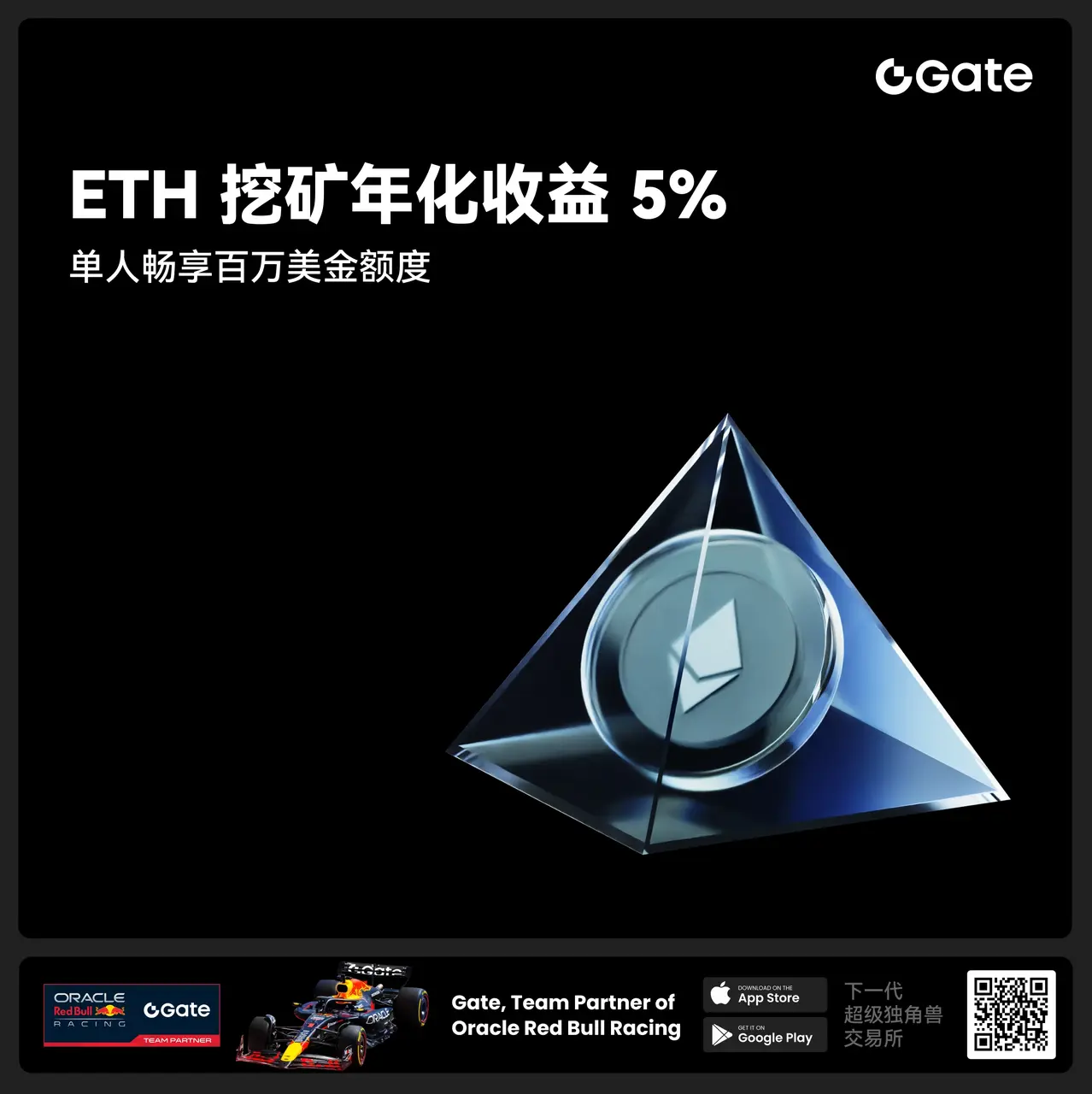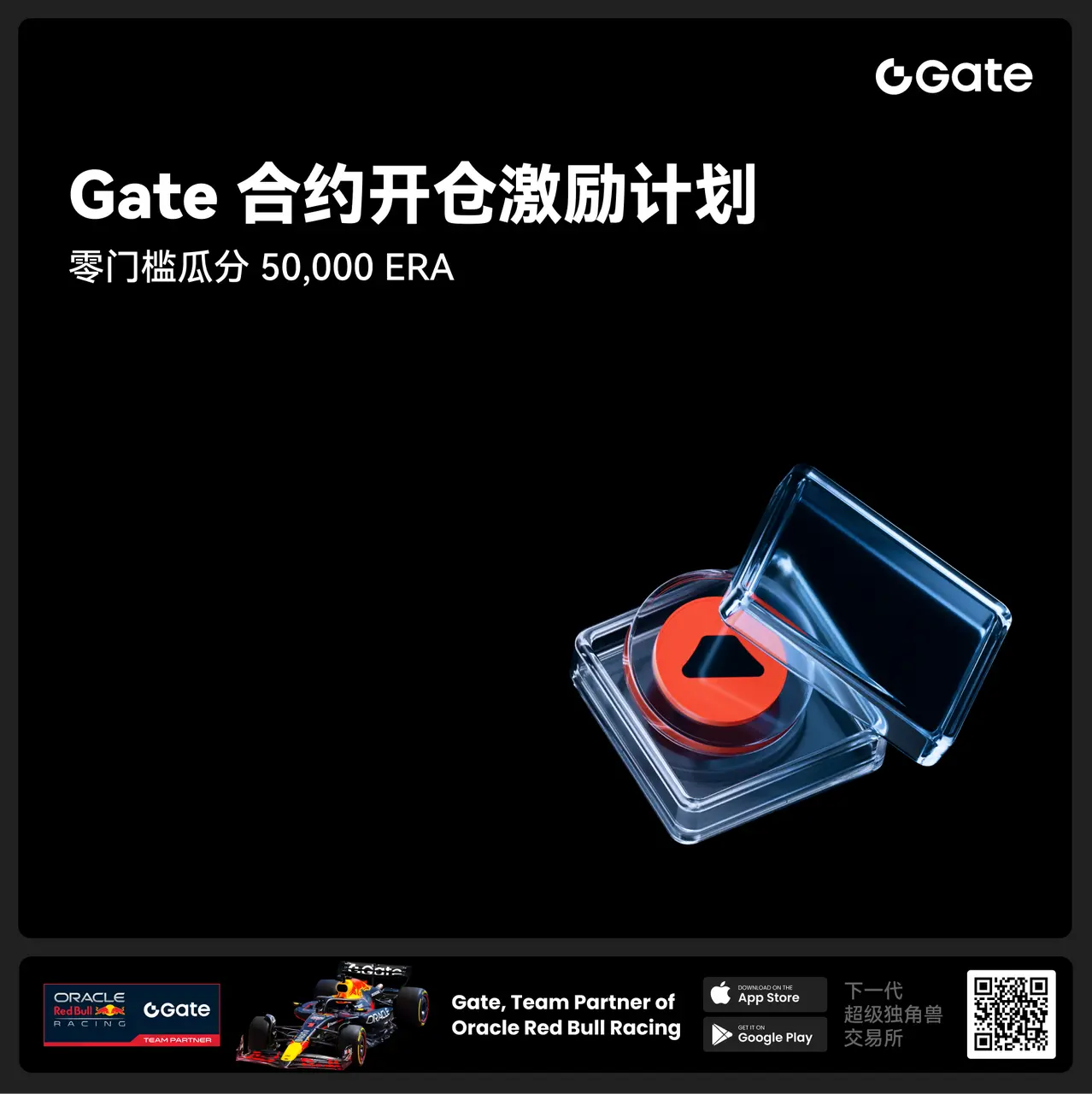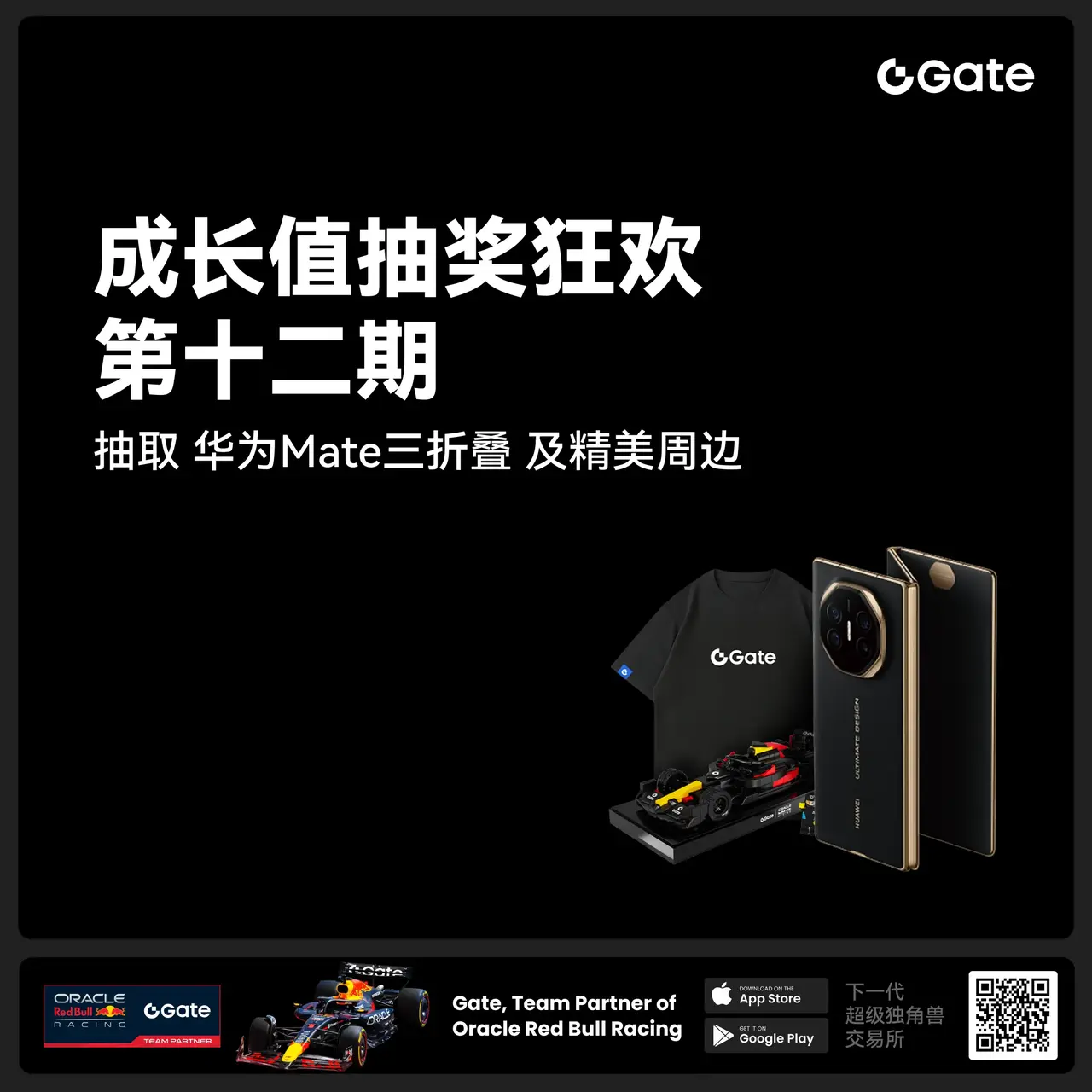- 話題1/3
3044 熱度
23844 熱度
6847 熱度
4317 熱度
171990 熱度
- 置頂
- Gate 鏈上賺幣:ETH 挖礦限時高收益!
✅ 年化收益近 5% + 額外獎勵單人額度 1000 ETH
💎 最低 0.00000001 ETH 起投,無贖回期,隨存隨取!
立即上車,穩賺鏈上收益:https://www.gate.com/staking/ETH
- Gate 合約開倉激勵計劃火熱上線!零門檻瓜分 50,000 ERA
開倉即有獎,交易越多獎勵越多!
新用戶享 20% 加成!
立即參與:https://www.gate.com/campaigns/1692?pid=X&ch=NGhnNGTf
活動詳情:https://www.gate.com/announcements/article/46429
#Gate # #合约交易 # #ERA#
- 👀 家人們,最近你們都攢了多少 Alpha 積分啦?
空投領到了沒?沒搶到也別急,廣場給你整點額外福利!
🎁 曬出你的 Alpha 收益,咱們就送你$200U代幣盲盒獎勵!
🥇 積分最高曬圖用戶 1 名 → $100 代幣盲盒
✨ 積分榜前五優質分享者 5 名 → 各得 $20 代幣盲盒
📍【怎麼玩】
1️⃣ 帶上話題 #晒出我的Alpha积分收益# 發廣場貼
2️⃣ 曬 Alpha 積分截圖 + 一句話總結:“我靠 Gate Alpha 賺了 ____,真的香!”
👉 還可以分享你的攢分技巧、兌換經驗、積分玩法,越乾貨越容易中獎!
📆【活動時間】
8月4日 18:00 - 8月10日 24:00 (UTC+8)
- 🎉 #CandyDrop合约挑战# 正式開啓!參與即可瓜分 6 BTC 豪華獎池!
📢 在 Gate 廣場帶話題發布你的合約體驗
🎁 優質貼文用戶瓜分$500 合約體驗金券,20位名額等你上榜!
📅 活動時間:2025 年 8 月 1 日 15:00 - 8 月 15 日 19:00 (UTC+8)
👉 活動連結:https://www.gate.com/candy-drop/detail/BTC-98
敢合約,敢盈利
- 🎉 攢成長值,抽華爲Mate三折疊!廣場第 1️⃣ 2️⃣ 期夏季成長值抽獎大狂歡開啓!
總獎池超 $10,000+,華爲Mate三折疊手機、F1紅牛賽車模型、Gate限量週邊、熱門代幣等你來抽!
立即抽獎 👉 https://www.gate.com/activities/pointprize?now_period=12
如何快速賺成長值?
1️⃣ 進入【廣場】,點擊頭像旁標識進入【社區中心】
2️⃣ 完成發帖、評論、點讚、發言等日常任務,成長值拿不停
100%有獎,抽到賺到,大獎等你抱走,趕緊試試手氣!
截止於 8月9日 24:00 (UTC+8)
詳情: https://www.gate.com/announcements/article/46384
#成长值抽奖12期开启#
Andreessen Horowitz warns of loopholes in draft crypto rules
Venture capital firm Andreessen Horowitz (a16z) is calling on US lawmakers to revise a draft crypto regulation bill, warning that the proposed framework could open dangerous loopholes and undermine investor protections.
In a Thursday open letter to the US Senate Banking Committee, the investment firm suggests that the regulators should close loopholes in the draft crypto legislation. The letter is a response to the discussion draft released in late July.
The discussion draft in question builds on the 21st Century Financial Innovation and Technology Act (CLARITY Act) and seeks industry input on the ongoing crypto regulation. A16z points to the definition of ancillary assets, referring to tokens sold with an investment contract that give buyers no equity, dividend or governance rights.
“The ancillary asset construct should not serve as the foundation for legislation without significant modifications,” the letter reads.
A16z pushes for “digital commodity” model
A16z said the current approach fails to resolve the core issues facing crypto markets and would be incompatible with the Howey test, the long-standing legal benchmark for defining securities.
The investment firm said this approach “will not resolve the challenges facing crypto market participants.” Instead, the firm recommends adopting the CLARITY Act’s narrower “digital commodity” framework, which it says would provide greater certainty while preserving regulatory simplicity.
A16z also claimed that “the Howey test remains a critical component of US securities law” and should remain in its current form. Its suggested solution is to “codify a modernized application suited to ancillary assets.”
It described the proposed changes to the Howey test as “unnecessary—and dangerous—because it seeks to rewrite Howey in a way that departs from settled law and undermines investor protections”:
Insider sales should be limited
A16z also said that applying securities law to primary transactions and commodity regulations for secondary transactions creates a loophole, allowing issuers to sell ancillary assets to insiders under exemptions, and then resell in the public market without falling under securities regulations.
As a solution, the investment firm suggested requiring the projects to achieve decentralization by eliminating mechanisms of control. Applying transfer restrictions through those means “can close loopholes that would otherwise arise,” the letter states.
According to a16z, this would also prevent insider enrichment at the expense of public investors and ensure that the distinction between the primary and secondary markets remains meaningful:
Related: Trump plans to pick a16z head of policy Brian Quintenz as CFTC chair: Report
A control-based decentralization framework
The firm suggests that regulators should adopt a control-based decentralization framework, which it says “is the appropriate way to evaluate the evolution of an ancillary asset’s risk profile.”
The letter explains that this approach “should be focused on whether any party retains unilateral authority—operational, economic, or governance—over the blockchain system.” This, according to the investment firm, should be considered when applying the Howey test:
Protect the plumbers, not the pipes
A16z further says that the US Securities and Exchange Commission’s (SEC) past focus on the “efforts of others” aspect of the Howey test “has created significant perverse incentives.”
It claims this leads to lower transparency, exposes users to undisclosed risks and stalls innovation. The letter also suggests that being involved with the technology at the basis of crypto should not infringe on securities law.
“Legislation should clarify that core technology functions necessary for the operation of decentralized blockchain systems — such as running consensus algorithms, mining, staking, and executing smart contracts — do not, in and of themselves, constitute regulated financial activity under U.S. securities or commodities laws,” the firm said.
Magazine: How crypto laws are changing across the world in 2025